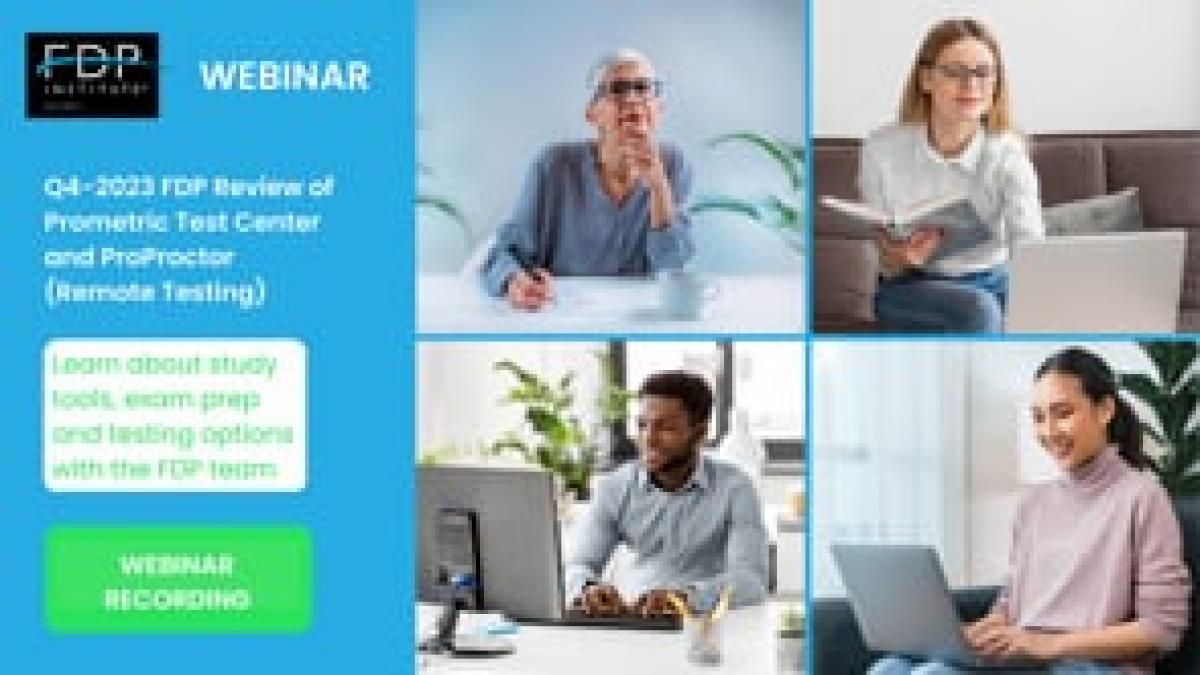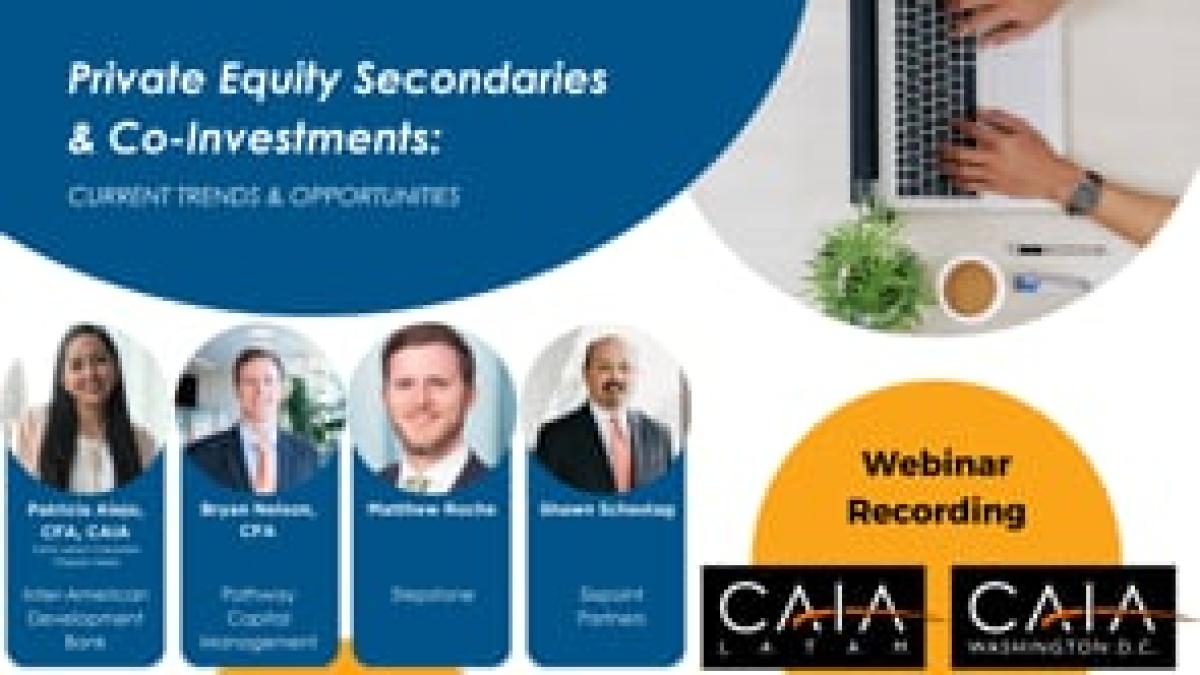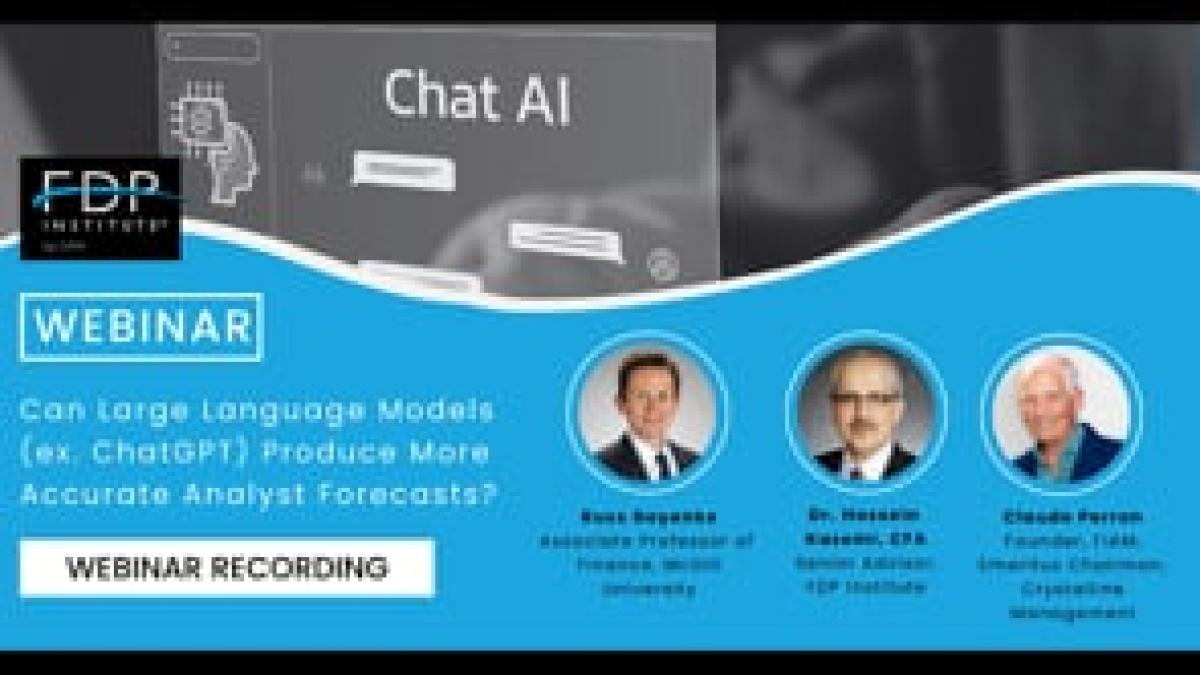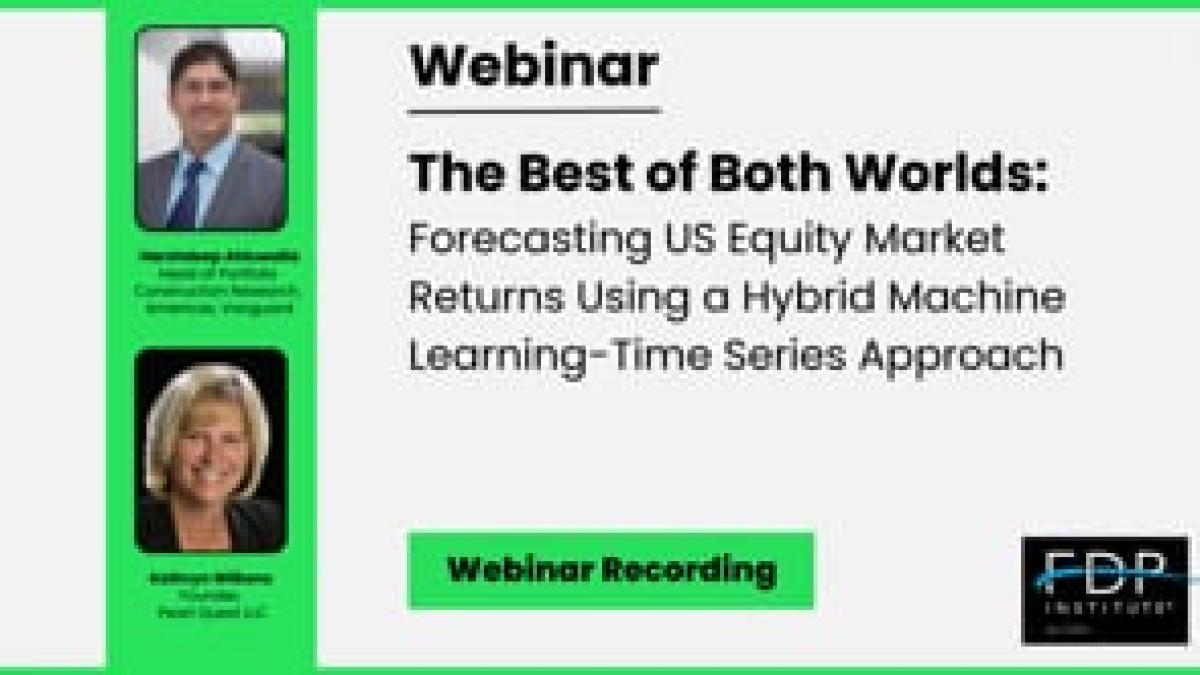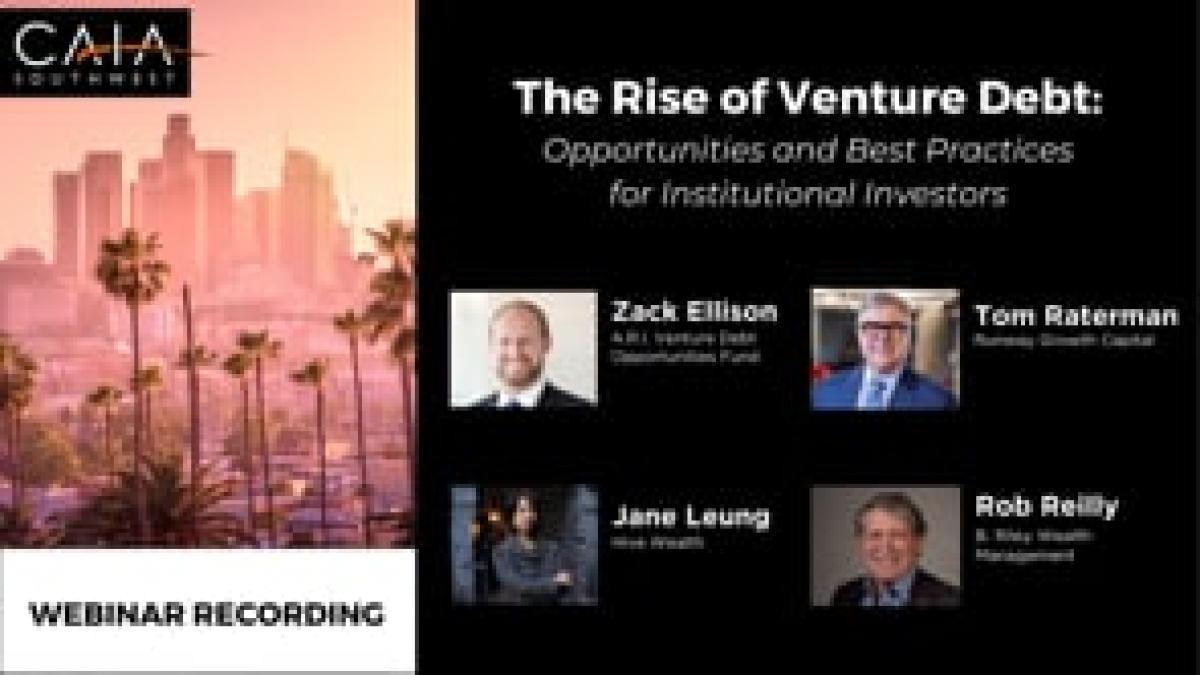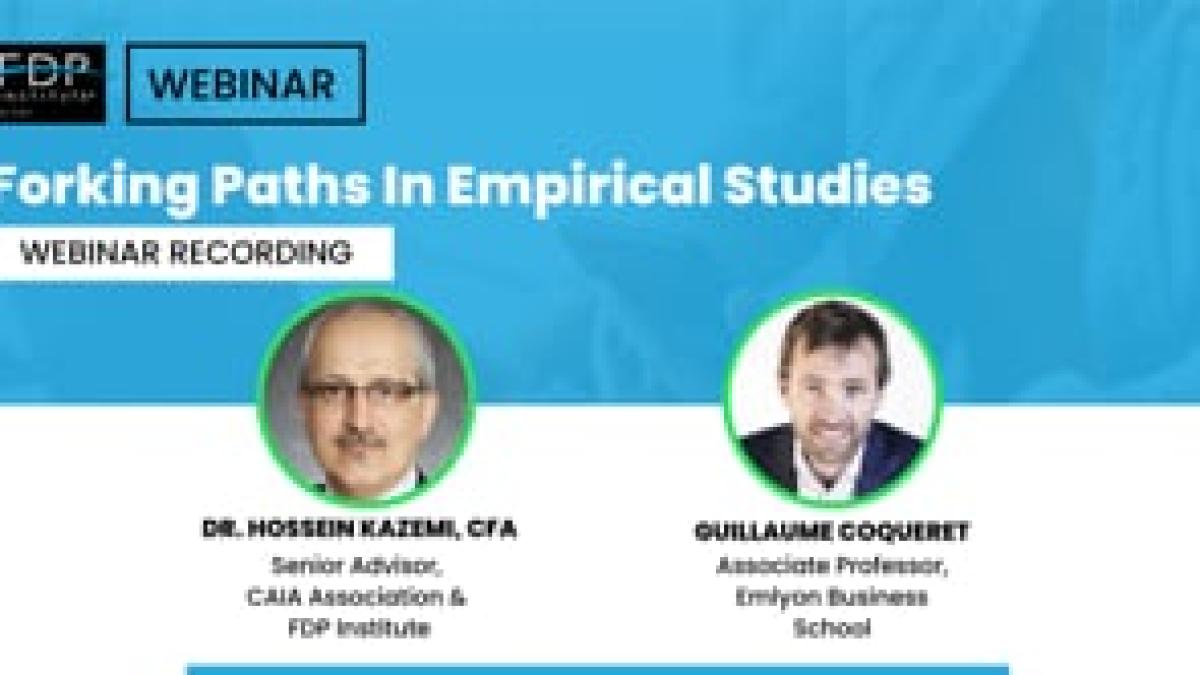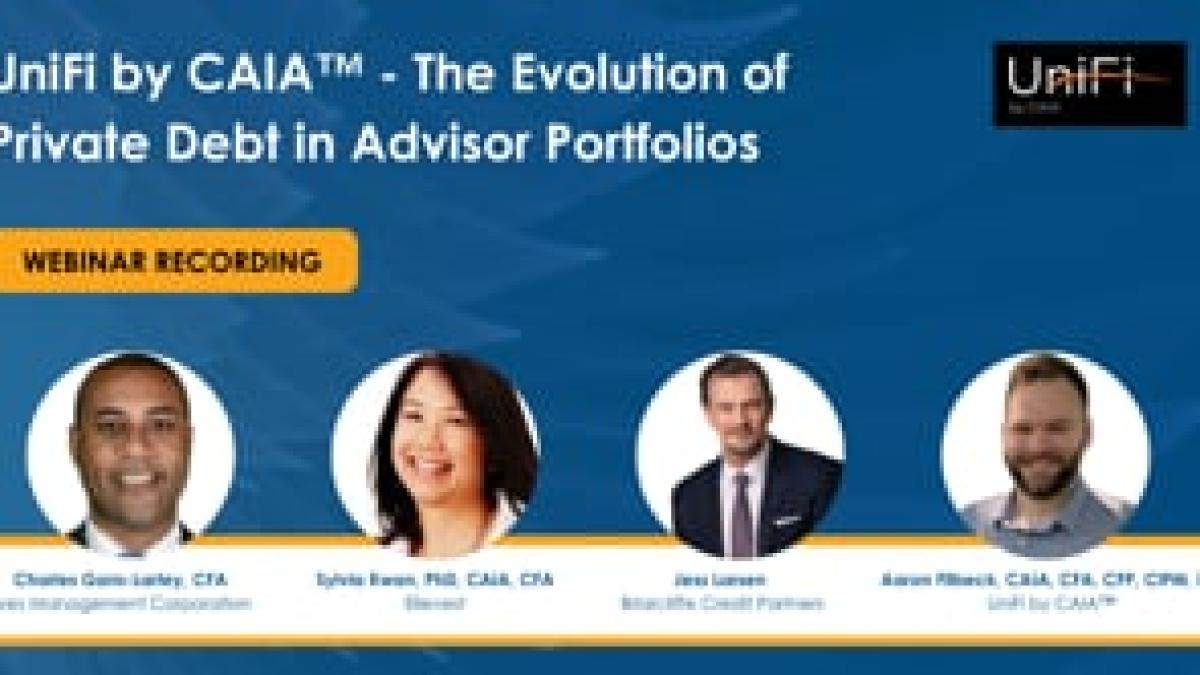Recorded Webcasts
Map out your learning journey to obtain the FDP Charter. The FDP team answered questions about the FDP program, where to obtain your curriculum, prep providers, preparation for exam day and focused attention on our testing options.
The secondaries market has experienced significant growth and evolution over the past decade. The market for dedicated co-investment funds has similarly evolved, albeit it on a more limited scale. Both options present investors with significant flexibility and a complex array of considerations as they manage exposure to alternative assets. Watch our panel discussion as we explored current developments in each of these dynamic opportunities.
Russ Goyenko, Associate Professor of Finance at McGill University discussed with Dr. Hossein Kazemi how large language models can, and soon they will produce more accurate analyst forecasts. Using textual information from a complete history of regular quarterly and annual (10-Q and 10-K) filings by U.S. corporations, we train machine learning algorithms and large language models, LLMs, to predict future earnings surprises. First, the length of MD&A section on its own is negatively associated with future earnings surprises and firm returns in the cross-section. Second, neither sentiment-based nor classic NLPs approaches are able to ``learn'' from the past managerial discussions to forecast future earnings. Third, only "finance-trained" LLMs have the capacity to "understand'' the contexts of previous discussions to predict both positive and negative earnings surprises, and future firm returns.
Predicting long-term equity market returns is of great importance for investors to strategically allocate their assets. Harshdeep Ahluwalia, Head of Asset Allocation, Americas for Vanguard Investment Strategy Group is one of the authors invited to discuss the exploration of machine learning methods to forecast US stock returns 10-years ahead and compare the results to the traditional Shiller regression-based forecasts more commonly used in the asset-management industry.
Harshdeep discussed with Dr. Kathryn Wilkens, Curriculum Consultant for the FDP Institute, how the authors then implemented the VAR-based two-step approach of Davis et al. (2018) with machine learning techniques and allowed for unspecified nonlinear relationships (a hybrid ML-VAR approach). They found up to 56% improvement in real-time forecast accuracy for 10-year annualized US stock returns.
Learn from a group of expert venture lenders and allocators who discussed relevant topics including:
- What are the key features of venture debt from an investor's perspective?
- Why is venture debt now viewed as one of the most attractive and opportunistic investment strategies in the market?
- How does the failure of Silicon Valley Bank create opportunities for non-bank lenders specifically?
- What is the historical risk and return of venture debt?
- How do you mitigate risk in venture debt?
- How are deals sourced, screened, underwritten, and managed to provide optimal risk-adjusted returns?
- What types of investors are involved in venture debt and what is driving demand in each investor segment?
- Where does venture debt fit into an investor's portfolio?
- Why is venture debt very likely to outperform over the next few years?
In this presentation, Mike Green, Portfolio Manager and Chief Strategist at Simplify, discussed how passive investing has:
- Increased correlations between securities
- Increased valuations regardless of fundamentals
- Reduced market elasticity raising the risks of extraordinary price movements
- Increased market concentration
- And has reduced the ability for new companies to become public
There's never been a more crucial time to stand out. The transformative effect of data science on the finance industry requires today's finance professionals to understand the application of big data, data mining, workflow automation and machine learning in investment decisions. Learn more about the FDP Community along with the Charter curriculum and a roadmap to prepare for the upcoming FDP exam. This session provided an outline of the curriculum, background requirements, reading materials and study tools to help you prepare.
Guillaume Coqueret, Associate Professor, Emlyon Business School, and Dr. Hossein Kazemi, Senior Advisor, FDP Institute, discussed the importance of small variations in the implementation protocol of applied studies. This presentation shared why we advocate the usefulness of reporting a wide range of outcomes in empirical work, based on many variations of design choices. This allows us to characterize the effects more exhaustively and leads to more robust conclusions. We illustrated these ideas in two studies: one on equity premium prediction and one on portfolio sorts (asset pricing anomalies, i.e., factors).
Topic: Secondary Venture Capital Investments
A secondary market transaction in venture capital (VC) is a transaction in which shareholders in a private VC-backed company sell their stock to an investor. Secondary transactions give shareholders in private companies an opportunity to liquidate some or all of their shares. Liquidity allows early investors to secure a return on their investments and gives employee shareholders the chance to cash in their equity compensation prior to an exit transaction, such as an initial public offering (IPO) or an acquisition.
The secondary market is one of the few spaces in the alternative investment universe that is considered countercyclical. What are the drivers at play today that have led to the volume, quality, and attractiveness of opportunity in the VC secondary space? How do investors approach this asset class and make considerations for portfolio implementation?
Hear Stephen West, Managing Director, StepStone Group, answer these questions and more.
Private debt has been one of the fastest-growing private market strategies since the global financial crisis. What once was a niche strategy pursued by hedge funds and private equity GPs has grown into a diverse and standalone industry. This panel discussion covers the evolution of the industry, current themes, considerations, and approaches to implementation for clients seeking differentiated income and diversification. We also discuss CAIA Association’s recently announced learning platform, UniFi by CAIA™ which targets the education gap in the Wealth Management Industry, as well as our newly released Private Debt Microcredential.



